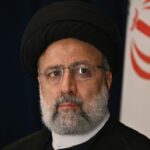UNITED NATIONS, Feb 13 (APP):Marking World Radio Day, which is celebrated on Feb. 13, the United Nations cultural agency has stressed the importance of radio, saying it is a powerful medium for celebrating humanity and constitutes a platform for democratic discourse.
This year’s theme “New World, New Radio” is an ode to the resilience of radio and a tribute to its capacity to adapt to societal transformations and listeners’ needs.
One of the most widely consumed medium at the global level, the UN Educational, Scientific and Cultural Organization (UNESCO) said radio has the ability to reach out to the widest audience, in the process having the ability to shape a society’s experience of diversity and providing a platform for everyone to be represented and heard.
The agency called on radio stations to celebrate World Radio Day’s 10th anniversary and the more than 110 years of radio.
In celebrating the tenth anniversary of the day, Audrey Azoulay, Director-General of UNESCO drew attention to the past year as highlighting the extent to which this medium “remains essential to our contemporary societies”.
As the world changes, so too does radio – evolving as it records humanity’s history by following and adapting to societal developments, she said.
This has been extremely clear during the coronavirus crisis, where, among other things, the medium has made it possible to ensure the continuity of learning and fight against misinformation.
“The COVID-19 pandemic has reminded us of its added value: with a penetration rate of over 75 per cent in developing countries, radio remains the most accessible medium”, the UNESCO chief said, citing that as a reason why it has been “a key tool” in responding to the crisis.
“It has helped to save lives by making it possible to relay health instructions, make reliable information accessible and combat hate speech”, she added.
UNESCO said it has produced royalty-free audio messages in 56 languages, offering them to radio stations around the globe to counter false rumours.
To remain the go-to medium of mobility, accessible everywhere and to everyone, it said that the medium has had to adapt to new technologies.
While radio of yesteryear was a simple transistor on our kitchen tables, nowadays, through smartphones, it follows us wherever one goes. The radio is no longer just a sound medium.
Technological progress and digitization have made it possible for it to adapt to behaviors and lifestyles.
Today it is listened to on television, and TV is heard on the radio while podcasts can be downloaded for listeners to hear whenever they like.
“Radio thus remains an essential medium that proves its resilience on a daily basis, along with its capacity for innovation” Ms. Azoulay said.
“This World Radio Day affirms the central role of radio, for today and tomorrow, because, more than ever, we need this universal humanist medium, vector of freedom.
Without radio, the right to information and freedom of expression and, with them, fundamental freedoms would be weakened, as would cultural diversity, since
community radio stations are the voices of the voiceless.”
Noting, “in this century of images…radio mirrors the thoughts of a world that must be heard to be understood”, she pointed out that “with the creation of Internet radio, podcasts, smartphones and new technologies, it is truly blossoming in its second youth”.
Radio also services society, sharing vital information during natural disasters,
socio-economic crises, epidemics and other important events.
Public service announcements, alerts and broadcasts are but a few examples of how the medium provides services and solutions to best meet listeners’ needs.
It connects people, forging or maintaining links – affirming its central role for today and tomorrow.
“More than ever, we need this universal humanist medium”, the UNESCO chief said.
Without it, she maintained that the right to information and freedom of expression and, with them, fundamental freedoms “would be weakened”, as would cultural diversity, “since community radio stations are the voices of the voiceless”.
“On this World Day, UNESCO calls on everyone – audiences, radio broadcasters and audiovisual professionals – to celebrate radio and its values and to promote reliable information as a common good”, Ms. Azoulay added.







